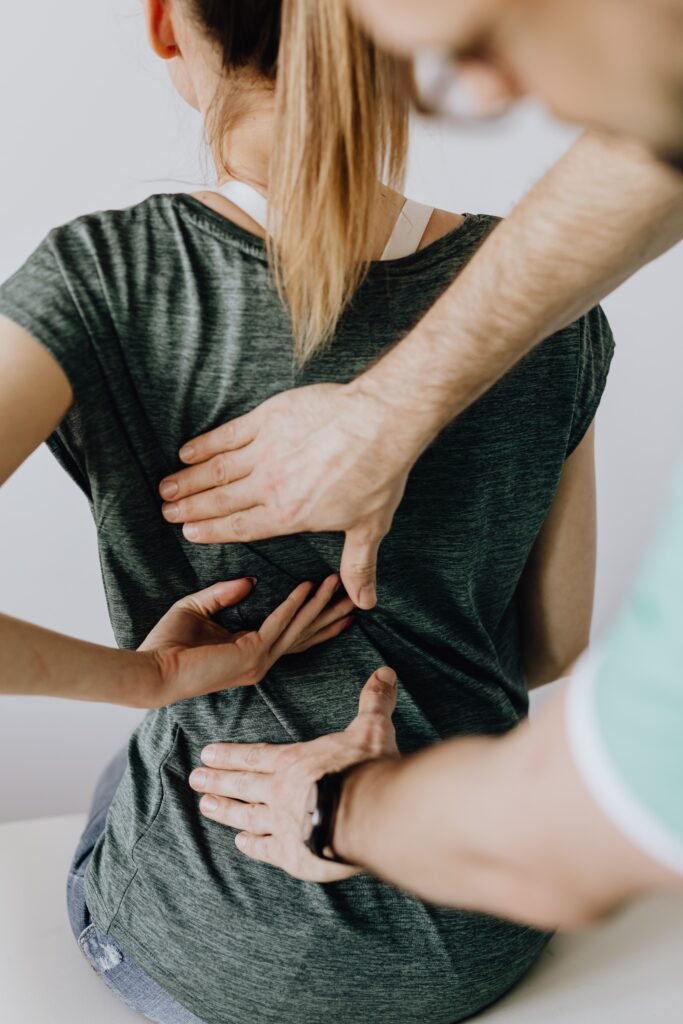
Constipation, or a condition where stool is difficult to pass, is a common ailment that affects nearly everyone at some point in their lives. On a general note, stools passed less than three times a week is comprehended as constipation by medical experts.
This article will explore the inter-relation between constipation and back pain, and evaluate some of the available treatment options, while also exploring dietary and lifestyle changes.
What is constipation?
Typically an obstruction in the rectum or the colon causes discomfort or pain in your abdominal region and the lower back area. A typical side effect of back pain caused by a tumor or infection is constipation.
Constipation may not be the underlying reason for lower back pain. Knowing the causes of these ailments will help you figure out whether they are related or not.
Constipation and back pain causes
Various factors and causes can result in constipation. Doctors sometimes, cannot pin down a single cause of constipation, and it may be caused by several other factors which are,
- Water deficiency or dehydration
- Diet without adequate fiber
- Lack of physical activity
- Obstruction of the intestines
- Cancerous growth in the rectum
Other reasons for constipation leading to back are described as follows:
Fecal Impaction
Fecal impaction is a condition where the stool is unable to pass through your colon or rectum. This causes extreme pressure on the organs around that area, triggering lower back pain and discomfort. This condition needs to be urgently treated as it can cause damage.
Treatments for this condition involve the intake of laxatives and enemas. A doctor should be seen immediately. He may perform water irrigation or prescribe anal suppositories.
General Constipation
Although general constipation is less severe than fecal impaction, it still needs to be addressed. Causes of constipation are usually linked to the diet, though other factors such as stress and anxiety can play a part. With general constipation, you may experience lower back pain symptoms, lumpy stools, and general malaise.
Treatment options for constipation and back pain
The first line of treatment for constipation is altering your eating. Try adding more fiber and water to your diet to help soften your stool. This will make it easier to pass.
Modify your eating and drinking habits
Your stools may become softer and easier to pass if you change what you eat and drink. Typically a diet rich in whole grains, legumes and fruits present you with both soluble and insoluble fiber you need to ward off constipation.
Go for a fiber-rich diet
If you consume more fiber or take a fiber supplement, drink lots of water or other liquids such as juices and smoothies. One of the best things you can do is to educate yourself on various foods to get rid of constipation. According to health experts, adults should consume 22 to 34 grams of fiber per day, reliant on their age and gender.
Exercise and stay active
Physical movements and activity help maintain your intestines healthy and support adequate circulation. Get up and start moving to improve blood flow around your intestines. You could also indulge in moderate exercises – such as walking, jogging, dancing or swimming – all of which promote digestive health and functionality.
Begin a regular bowel movement schedule
Building a regular bowel movement schedule helps to train your body on instigating bowel movements during specific times of the day. You can try sitting on the toilet 10-15 minutes after your breakfast. Try to relax your abdominal muscles and breathe properly.
Try Senna tea
Senna is well-known to kindle bowel movements; promote contractions of the colon and help counter constipation. Research has proven that senna leaves have active compounds which act as laxatives. Senna tea is effective in cleansing the colon. However, make sure that you consume the tea within the endorsed dose of fewer than 30mg per day and for short periods of time.
What to do if your constipation does not resolve?
In cases where your constipating is temporary, you can get laxatives, suppositories, or stool softeners from your local pharmacy. There are also specific natural remedial options available. If your condition is chronic (or has lasted for months), it’s best to seek medical advice from your doctor.
If you notice improvements in your condition of constipation, but it does not relate to or eliminate your back pain, it is best advised to consult a medical expert for a profound analysis.
Conclusion
The good news is that with added water intake, and the addition of a fiber-filled diet, most cases of constipation can be taken care of naturally. Daily exercises, the addition of coffee, or moderate amounts of caffeine in your diet can stimulate bowel movements.
Following improved symptoms of constipation, you will notice your back pain also decreases considerably; however, if you feel your symptoms don’t improve or worsen over the period of time, it’s best to seek advice from your medical doctor.



